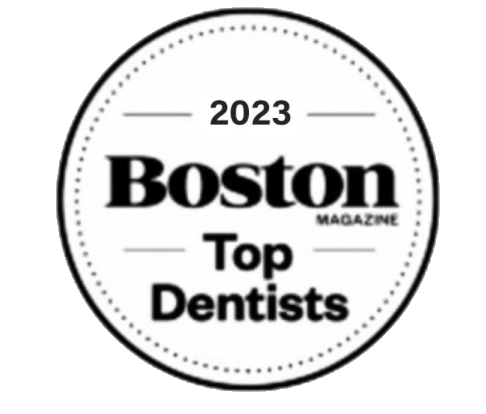Why Should I See an Oral & Maxillofacial Surgeon for my Oral Surgery?

If you find yourself in the need of oral surgery whether it be removal of a bad tooth, placement of a dental implant, or removal of your wisdom teeth - no other medical or dental practitioner has more training and expertise performing surgery on the mouth and jaws than oral and maxillofacial surgeons.
What is an Oral Surgeon? What is the difference between an oral and maxillofacial surgeon and my general dentist?
All dentists receive a four-year dental school education prior to receiving their dental degree. Oral and maxillofacial surgeons train for an additional four to six years beyond dental school in an accredited hospital based residency program where they gain hands on experience in medicine, general surgery, radiology, anesthesia, medical and surgical critical care medicine, emergency medicine, otolaryngology, maxillofacial trauma, pathology and facial reconstructive surgery. Some trainees receive medical degrees and pursue subspecialty fellowships beyond residency training. But all get the same intensive core training becoming experts in third-molar removal, simple and complex exodontia, dental implant placement, corrective jaw surgery, and oral and facial trauma surgery. While all oral and Maxillofacial Surgeons are Dentists, only about 4% of Dentists are Oral and Maxillofacial Surgeons.
Following residency training, oral and maxillofacial surgeons pursue an intensive two year educational track and examination period to earn Board Certification in the specialty and then need to demonstrate requisite knowledge, training, experience and credentialing through the annual American Board of Oral and Maxillofacial Surgeons certification maintenance program. Dr. Lucca was Board Certified by the American Board of Oral and Maxillofacial Surgeons in 2012.
I’m just having some teeth removed and I need a dental implant placed, why can’t my general dentist do it?
Many general dentists prefer to have their patient treated by an oral surgeon because as oral and maxillofacial surgeons, we have seen it all. The truth is, no surgery is simple. But oral surgeons are uniquely qualified to make a complicated case feel simple. Surgical procedures can seem very easy when they are going well, but when the unanticipated arises, a surgeon needs to be able to draw on vast experience to recover from any complex problem that emerges.
Our advanced training and experience allows us to best anticipate potential complications and to avoid them, or properly manage them if they do occur. Our hospital training makes us best suited to know how to manage patients with complicated health issues. We possess the broad skill set to complete oral surgery procedures more quickly which introduces less pain and stress for the patient. Swift and steady hands lead to a more uneventful recovery and a better overall experience. And for all procedures large or small, oral and maxillofacial surgeons are uniquely distinguished and qualified with advanced training to administer in-office ambulatory anesthesia to aid in comfort and fear relief for our patients.
Oral surgeons are the obvious choice for patients needing surgery because from pre-operative planning to post operative care, our surgical experience is unequaled in the practice of dentistry.
Oral surgery offices are built from the ground up with outpatient surgery and anesthesia services in mind. An outpatient surgery office requires a type of facility with infrastructure needs that diverge from the needs of an office providing general dental care. This is why it is difficult to properly service patients as a traveling surgeon. From anesthesia and safety equipment, to continuity of training among auxiliary staff, to patient flow and recovery - the facility is designed for outpatient surgery.
All oral-surgery offices undergo onsite examination and certification to ensure office-based anesthesia standards are met. Additionally, while complications are rare, patients can be reassured that a quick unscheduled visit to check in to confirm healing is going well is possible and seamless and that they will be met by a familiar face. With most oral surgeons’ offices staffed full time, there is always an expert available to provide needed follow-up and reassurance. Such accessibility is too often just not available with a traveling provider practice model.
My dentist says they can remove my wisdom teeth or place my dental implant and thus I don’t have to see a specialist such as an oral surgeon?
An oral and maxillofacial surgeon only performs surgical procedures. This singular focus is what sets oral surgeons apart from most dentist with divided focus on non-surgical routines such as dental fillings, dental crowns and root canals. As surgical specialists, we treat complications that occur for patients when treated by doctors with limited training practicing outside of their scope. These surgical complications include but are not limited to nerve injuries, damage to the maxillary sinus, and severe facial infections requiring hospitalization.
We encourage you to research who is performing your surgery and ask important questions such as: Is this doctor board certified as an oral and maxillofacial surgeon? How many of these procedures has he or she performed? Where did he or she obtain the training necessary to perform these surgeries safely and to be able manage potential complications competently?
It takes many years after dental school in a surgical residency program to master oral surgical techniques in a way that leads to best outcomes. When you choose a board-certified oral and maxillofacial surgeon, you can be assured that your care is in the hands of someone who has dedicated his entire professional life to performing surgery. With an oral and maxillofacial surgeon guiding your care, you can be confident that the doctor has put in thousands of hours of training before treating you.
What procedures does an oral surgeon perform?
While we are indeed the wisdom tooth experts, there are many other areas of surgical care in which oral surgeons have expertise. We are experts in routine and complex dental implant placement and the various hard and soft-tissue grafting techniques that are necessary to facilitate predictable and successful dental implant placement. Some surgeons focus on facial reconstructive procedures, craniofacial surgery, cleft lip and palate, and some focus on TMJ surgery. Every oral surgeon is trained to manage oral pathology ranging from simple biopsy to complex cyst and tumor removal. We all continually train in advanced airway management skills and medical emergency management pursuant to our dedication to the safe provision of in-office anesthesia services for our patients.
At Lucca Oral and Facial Surgery our entire team is focused on surgical care.
Procedures as basic as a single tooth extraction or as advanced as full mouth dental implant rehabilitation are all surgical procedures with irreversible outcomes. The truth is that no surgical procedure or surgical patient is simple and we believe patients needing oral surgery are best served by a trained hand and that experience matters.
Dr. Mario Lucca has been practicing dentistry in Massachusetts for over 20 years and has accumulated a total of 14 years of advanced education. After dental school, Dr. Lucca trained for 5 years at the Tufts University School of Dental Medicine Oral and Maxillofacial Surgery Residency Program with Surgical and Anesthesia rotations at Tufts Medical Center, Winchester Hospital, and Lemuel Shattuck Hospitals. Doctor Lucca received his specialty certification in 2010 and completed board certification with the American Board of Oral and Maxillofacial Surgeons from 2010-2012. Dr. Lucca has been in private practice as an Oral and Maxillofacial Surgeon for 13 years and has held clinical staff privileges at a number of local community hospitals and teaching facilities over the past decade.
To learn more about our office, call 617-300-0345 or contact us today to schedule an appointment.






